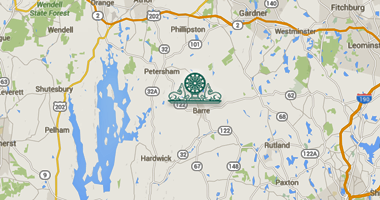This is the first module of a year-long path program, Writing Liberation: The Buddhist Practice of Spiritual Autobiography. Participants commit to all three residential programs (paid in three equal installments) and the online components in between. For full details on this path program, please click here.
This path explores writing spiritual autobiography as a liberative practice. For centuries, Buddhist practitioners, like others on diverse spiritual paths, have used the practice of writing spiritual autobiography as a powerful tool for increasing self-knowledge and awareness; for overcoming self-deception; and for bringing into view the journey of the spiritual self from suffering and ignorance to clarity, peace, and liberation. Particularly in Buddhism, the writing of a spiritual autobiography can be understood as a self-reflexive act through which the writer strives to find meaning in and metabolize the events of her life as transformative experiences along the path to fulfilling her deepest human potential. Together, we will explore how the creation of a narrative spiritual self can provide us with an imaginative arena within which to grapple with the struggles, sufferings, joys, and fruitions of the soteriological journey.
I. Writing Liberation I: What is Buddhist Spiritual Autobiography?
In this module, we will examine the origins of the genre of spiritual autobiography by reading selections from some of the classic spiritual memoirs by early figures such as Saint Augustine, through more recent writers, such as Saint Teresa. We will explore the difference between biography, autobiography, memoir, hagiography, and spiritual autobiography to clarify what kind of a writing process spiritual autobiography encourages. Finally, we will engage with the notion of the Buddhist “self-liberation life story” (Tib. rang rnam), especially as this form was developed in Tibetan Buddhist literature, to consider how the act of writing the spiritual self into existence can be a powerful tool for enlightenment.
Writing Component: Participants will explore writing as a confession of self to the self, not to elicit blame or guilt, but as an act of truth-telling and affirmation, to perform, as Michel Foucault says, “a work of oneself upon oneself.” The idea here is that writing the self can transform the familiar into something strange and in the process, reconfigure the relationship that one can have to oneself.
II. Writing Liberation II: Revisionist History/Retrospective Writing: Configuring Life as a Buddhist/Spiritual Life
In this module, we will read selections from the life story of the Buddha and other Buddhist teachers, as well as those of some other significant spiritual figures such as Jesus, Saint Teresa, and others, to see how these spiritual stories are already our own life stories. We will explore the power of the narrative self as a vehicle for imagining ourselves into genuine liberation and awakening.
Writing Component: Participants will review their lives up to now through writing by focusing on reframing significant events, showing how these have led up to this moment on the spiritual journey.
III. Writing Liberation III: Awake Now—Writing Liberation in Each Moment
In this module, we will focus on creating the present-moment spiritual self and explore how the act of writing as a Buddhist practice enhances self-awareness, clarity, purpose, and direction along the spiritual journey. We will examine different formats for a spiritual autobiography – how choosing the structure of the memoir can help to mirror your unique spiritual path.
Writing Component: Finding your voice – revealing the self’s deeper being in the present moment – the moment of writing.
Weeklong retreats will practice Noble Silence from wake-up until noon. From noon until bed, mindful speech will be practiced. This path program has no prerequisites other than the sincere desire to engage in learning about and writing a spiritual autobiography. Some meditation experience is helpful, but not required.
Between the weeklong retreats, participants will meet online twice per month to discuss assigned readings and writing exercises. One meeting with focus on discussion of assigned readings and writing exercises. For the second meeting, participants will meet with their “home group” – a group of three or four people who share their writing and reflections and thoughts around the writing process.
Each participant will be asked to read three spiritual autobiographies over the course of the path.




